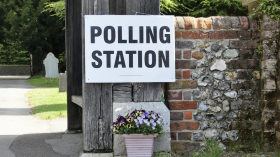Sue Robb of 4Children talks to Julie Laughton and Alison Britton from the Department for Education about the role of childminders in delivering the 30 hours free entitlement.
Rural areas marginalised by slow digital services

MPs have warned that rural inhabitants are at risk of becoming ‘second-class’ citizens in the digital revolution as urban dwellers benefit from next-generation broadband and 5G mobile.
A new report from the Environment, Food and Rural Affairs Committee, titled An Update of Rural Connectivity, has highlighted the continuing digital divide between urban and rural areas, finding that improvement in both rural broadband and mobile coverage in recent years has only barely kept up with increasing demand.
As a result, poor connectivity continues to hinder rural businesses and is preventing people from engaging with online public services the rest of the country take for granted.
Despite some efforts from ministers, the committee is not confident that the government has fully grasped the extent of the problem, the scale of the challenge, or the wider cost of poor connectivity for the rural economy, especially given the continued challenges posed to rural businesses and communities.
The report, therefore, recommends that a ‘rural roaming’ solution is needed to tackle partial ‘not-spots’ in mobile coverage in the absence of a forthcoming agreement between government and Mobile Network Operators.
Neil Parish, chair of the committee, said: “Despite improvements in coverage since our predecessor’s Report, our inquiry has shown that poor broadband and mobile data services continue to marginalise rural communities, particularly those living in hard to reach areas. Digital connectivity is now regarded by many as an essential utility, with many in rural areas struggling to live a modern lifestyle without it. There continues to be a lot of frustration felt by those living or working in rural areas– and rightly so.
“We support the government’s commitment to the broadband USO and an ‘outside-in’ approach to full fibre roll out, ensuring that rural areas are prioritised in the future. We also welcomed the Prime Minister's commitment to achieve universal full-fibre broadband by 2025. However, the committee is not confident that the government has fully grasped the scale of the challenge currently faced and is sceptical as to whether the government will meet these ambitious new targets without considerable and potentially controversial reforms.
“In addition, on the eve of 5G mobile data services, people in rural areas will increasingly feel like second class citizens if they can’t access 4G or even 3G services. Rural roaming must be seen as a solution, if no voluntary proposal is agreed between mobile network operators and government. The problem of poor connectivity in rural areas has gone on for far too long. With so many of our public services now delivered primarily online, it is imperative that this problem is resolved and that rural communities are granted the same digital access as the majority of their urban counterparts.”
Kevin Bentley, chairman of the LGA’s People and Places Board, said: “Councils are best placed to understand the digital needs of their local areas. They have been at the centre of delivering the Superfast Broadband Programme, having committed £740 million to extending connectivity to the hardest to reach areas, but cannot fix the issue alone.
“Our Post-Brexit England Commission, launched earlier this year, outlines councils’ concerns that mobile network operators’ coverage data is not reflective of consumers’ mobile experience on the ground in rural areas. Independent analysis of coverage has revealed patchy access, high dropped call rates and not-spots in areas where coverage is reported by mobile operators to be sufficient. Given this, it is concerning that Ofcom has chosen to roll back its coverage obligation to reach only 90 per cent of communities at a time when so many are already being poorly served.
“The government needs to work with Ofcom to launch a rural mobile roaming scheme allowing customers to roam onto any available network should 4G coverage not reach 95 per cent by 2022. In the meantime, any deal that the government strikes with mobile network operators, such as recent proposals for a shared rural network, needs to take proper account of councils’ role in the planning process and clearly demonstrate how operators will be held to account on their coverage commitments to deliver for residents and business.”
Company Focus
Located in Bromley, Japanese Knotweed Eradication Ltd has been providing solutions in the treatment and removal of Japanese Knotweed (Fallopia Japonica) for over a decade. During this time we have mastered a repertoire of methods, from herbicidal treatments to landscaping solutions, tailored to address the unique challenges our clients face with this pervasive weed.
Event Diary
UKREiiF has quickly become a must-attend in the industry calendar for Government departments and local authorities.
The multi-award-winning UK Construction Week (UKCW), is the UK’s biggest trade event for the built environment that connects the whole supply chain to be the catalyst for growth and positive change in the industry.
Supplier Profiles
Geo Energy
At GeoEnergy Design, we're on a mission to disrupt the traditional way heating and cooling ha
Latest Features
Professor Harith Alani, director of the Knowledge Management Institute at the Open University explains how AI can be used for good and bad.
Alex Lawrence, head of health & social care, techUK sets out techUK’s Five Point Plan for CareTech.

















